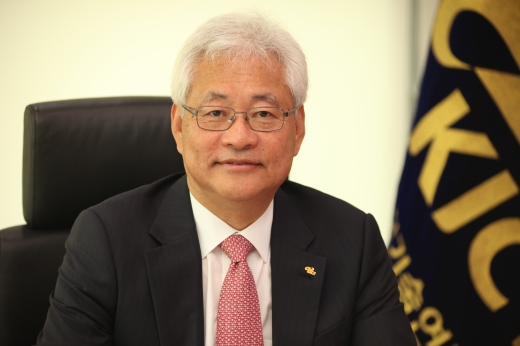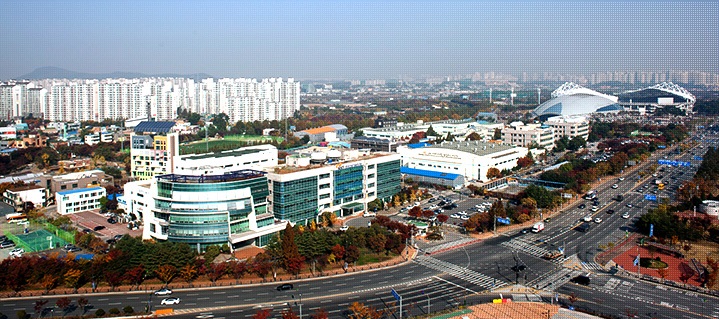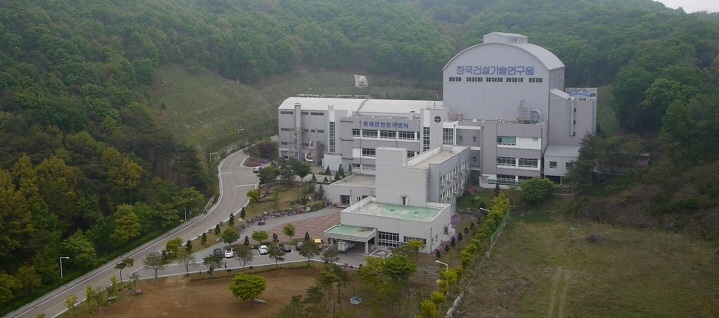Cooperation with foreign entities promoted
Korea Institute of Civil Engineering and Building Technology (KICT) is a top-notch think-tank that works on construction policies and techniques for comfortable and safe land environments as well as develops technology to improve public safety and quality of life.
“KICT pushes the boundaries of value creation as it seeks to create a research ecosystem for convergence and collaboration,” said KICT President Lee Tai-sik. “Each KICT institute has been established and based on specialized expertise to promote ‘Future Flagship R&D’ as well as establish ‘Big Engineering R&D’ to lead the construction industry in Korea,” he stressed.
“KICT fosters the high-value construction industry that initiated the dramatic national economy growth after national independence, promotes growth in developing countries and supports the expansion of SMEs (small and medium-size enterprises) into developing countries,” said President Lee. Korea Institute of Civil Engineering and Building Technology is a trusted partner with convergence and cooperation through constant R&D and innovation, he added.

Nine research institutes under KICT
KICT, as a research hub, operates nine research facilities. They include Construction Policy Research Institute, Highway & Transportation Research Institute, ICT Convergence and Integration Research Institute and Hydro Science and Engineering Research Institute. The Construction Policy Research Institute is a global policy leader in a rapidly changing construction environment. The institute anticipates and responds to changes in the construction industry and technology environment. Globally competitive researchers and facilities enable advancements in the development of industrial policies, technological policies, productivity-enhancing technologies and construction project management techniques. The KICT’s research achievements include “Electrical Fire Prevention Technology and Post-Fire Form-Preservation Technology,” “Rolled Steel Surface Composite Beam that can Endure a 3-Hour Fire,” ”Green Remodeling Window Technology to Reduce Cooling and Heating Energy by 20%,” Smart Water Micro-Grid Technology,” and “Technology to Reduce Green Algae in Rivers.”
In the middle of August, some 40 to 50 foreign envoys posted in Korea will visit Korea Institute of Civil Engineering and Building Technology and be briefed on its wide-ranging research activities.

International cooperation
KICT’s International Cooperation Division operates a variety of supporting programs for overseas businesses of Korean small and medium-sized companies, and manages MOUs with international institutes. The division’s main functions include the execution of international development projects, implementation of training program, operation of technology-oriented cooperation programs and management of MOUs and related activities with foreign entities.
KICT’s recent international activities include:
KICT concluded an MOU with the Iranian Society of Consulting Engineers (ISCE) in Teheran, Iran on February 29, 2016. On the same date, negotiations were made with respect to introducing the passive house architectural system to the Presidency Center for Innovation and Technology Cooperation (CITC) of Iran, which provides national science and technological advice directly under the Iranian President.
Lee Tai-sik, President of KICT stated, “We not only obtained the possibility and efficiency of receiving project orders through this agreement with ISCE, but also progressed a step ahead from a continually trusting relationship to a practical cooperative relationship with the Iranian Ministry of Roads & Urban Development.” KICT intends to actively participate in the Korean government and the Ministry of Land, Infrastructure and Transport’s projects of advancing overseas based on our experience of providing technical training in both the United Arab Emirates and Kuwait.
“Korean construction technology fair in Hanoi”
On November, 2015, KICT jointly held the “2015 Korean Construction Technology Fair” in Hanoi, Vietnam, in partnership with the Ministry of Land, Infrastructure, and Transport and the Korea Agency for Infrastructure Technology (KAIA). A number of government officials and civil servants attended the fair. In addition to KICT’s presentation on “Glass Fiber Reinforced Hot-Mix Asphalt Concrete,” about 28 SMEs presented 46 technologies suitable for Vietnam.
On November 5, 2015, KICT signed an MOU with Mekuria Haile Teklemariam, the Minister of Ministry of Urban Development, Housing and Construction of Ethiopia. KICT held a ‘Cooperation Meeting for Construction Technologies between Korea and Ethiopia’ at KICT Ilsan Headquarters on June 9.
KICT opened a Construction Industry Innovation Center that exported a 13 million USD comprehensive road and bridge construction technology package to the Kuwaiti Government-funded Institute in December. KICT has more ongoing plans to accelerate overseas expansion.
Of particular note, KICT signed an MOU with the US Construction Industry Institute (CII) which has a world-best reputation in the construction policy and project management sector. The agreement was signed on August 3, 2015 at the CII Boston Conference for mutual cooperation, joint construction policy research and benchmarking global construction companies.

Small-medium industries support programs
KICT implements the “SME support projects” for on-site technological difficulties. This project offers on-site technological guidance and KICT advice on how to solve on-site technological difficulties experienced by SMEs. According to types of technological difficulties, short-term technological support is separated from mid-term technological support
KICT helps transfer and commercialize technologies, while promoting the technology competitiveness of construction industries through implementation of technology contracts that enable KICT technology licensing (includes intellectual property).

